- Author Jason Gerald gerald@how-what-advice.com.
- Public 2023-12-16 10:50.
- Last modified 2025-01-23 12:04.
Your Android phone can be connected to a computer via a USB cable. This way, you can access the files on your phone via your computer, just like a regular USB drive. If you're using a Mac, you'll need Android File Transfer, a special program created by Android developers. Alternatively, you can also use AirDroid, a cross-system program that allows you to quickly transfer files wirelessly.
Step
Method 1 of 3: Using macOS
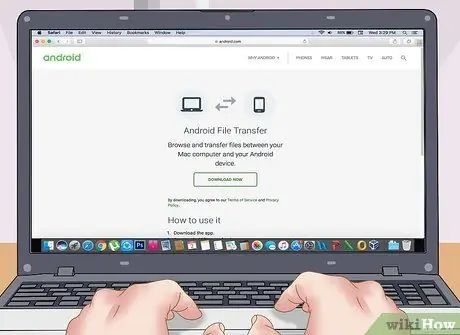
Step 1. Visit the Android File Transfer site on Mac
You'll need this program to connect your Android phone to your Mac and access the files on it.
Visit android.com/filetransfer/ via Safari to download the app
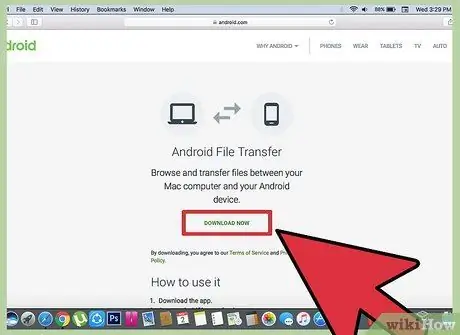
Step 2. Click "Download Now" to start downloading the program's installation files to your Mac
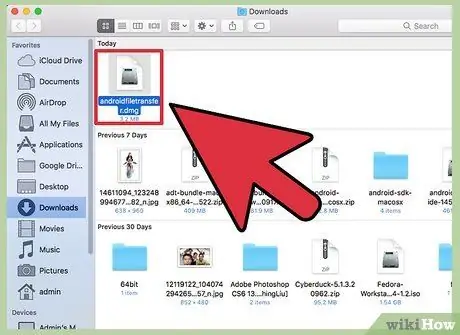
Step 3. Once the Android File Transfer installation file is downloaded, open the file
The size of the installation file is only a few MB, so the download shouldn't take long, even if your connection is slow.
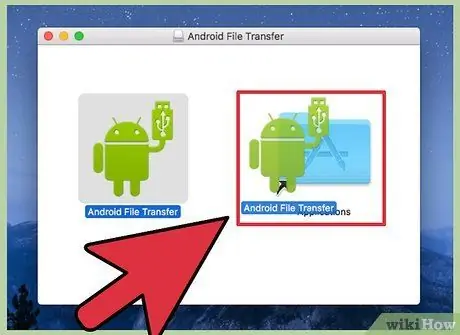
Step 4. Drag the "Android File Transfer" file to the "Utilities" folder
You will see folder and file icons in a new window when you run the installation program.
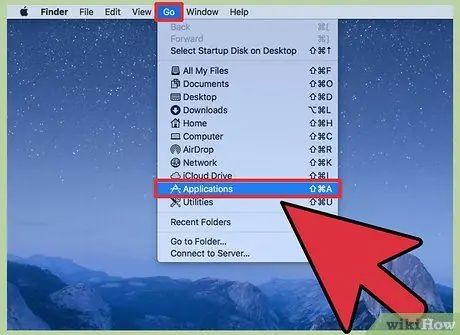
Step 5. Open the Applications folder by clicking the "Go > Applications" menu on the desktop
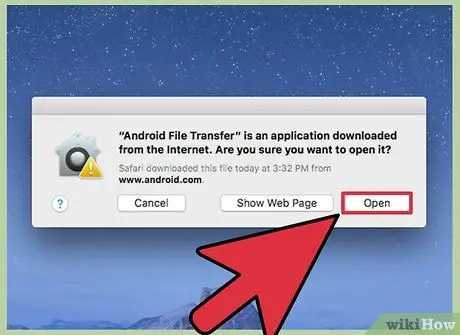
Step 6. Start Android File Transfer
Click "Open" when you are prompted to run the application. This request will only appear once, when the application is first installed.
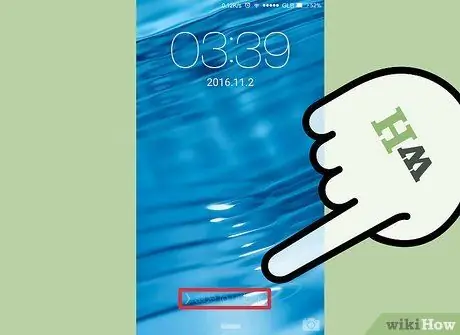
Step 7. Unlock Android phone screen
To access the files, the phone must be unlocked.
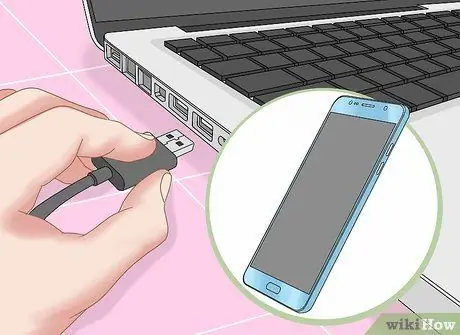
Step 8. Connect Android phone to Mac via USB
If the phone settings are correct, the Android File Transfer window will appear on the screen.
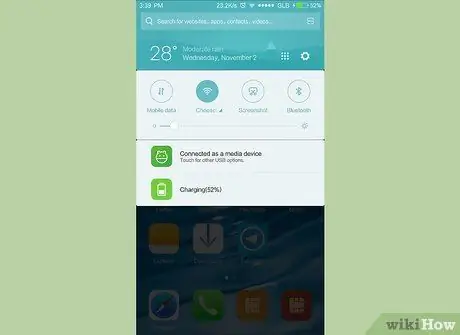
Step 9. Open the notification panel on your Android phone by swiping down from the top of the screen
You will see a panel showing all notifications.
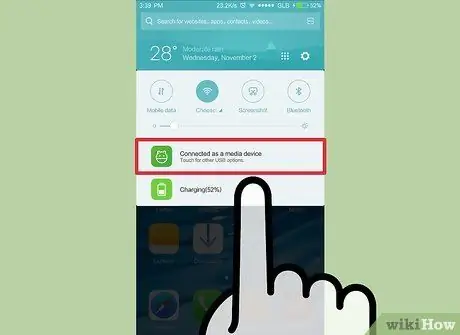
Step 10. Tap on the USB option
This option allows you to select the USB mode of the device. Find this option with the USB logo among other notifications that appear.
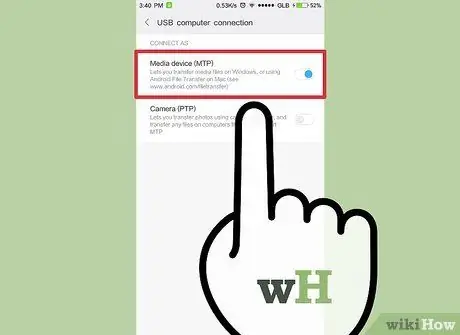
Step 11. Select "File transfer," "Media transfer," or "MTP"
This mode allows the phone to connect to a Mac as a USB drive, and display the contents of the drive in Android File Transfer.
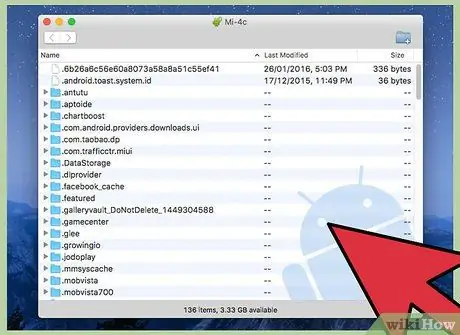
Step 12. Browse to the file in the Android File Transfer window
This window will display all the folders on the device, just like a Finder window.
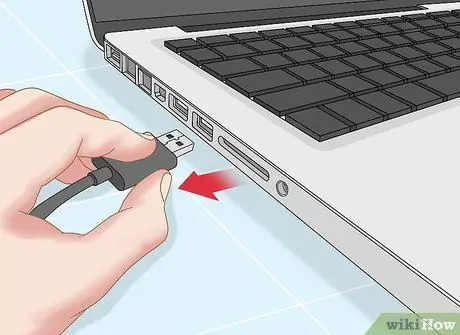
Step 13. When you're done accessing the files, unplug your phone from the Mac
Make sure you don't unplug your phone while transferring data.
Method 2 of 3: Using Windows
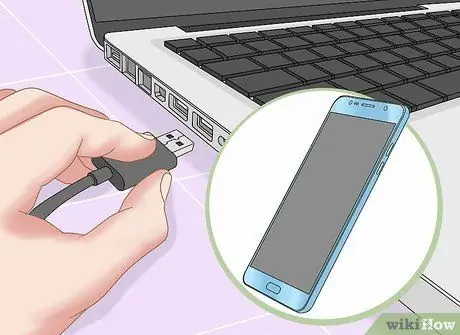
Step 1. Connect Android phone to computer with USB cable
You can use a charging cable to connect your phone to a computer.
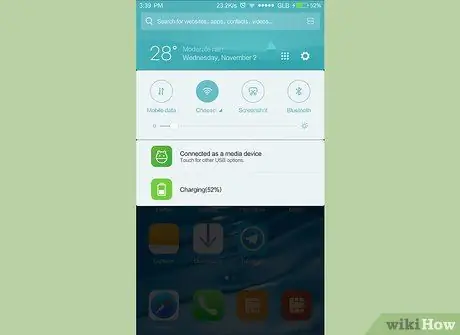
Step 2. Open the notification panel on your Android phone by swiping down from the top of the screen
You will see a panel showing all notifications.
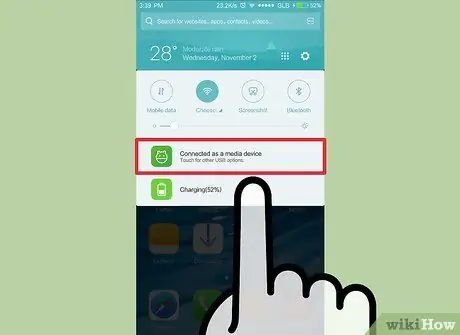
Step 3. Tap the USB option
This option allows you to select the USB mode of the device. Find this option with the USB logo among other notifications that appear.
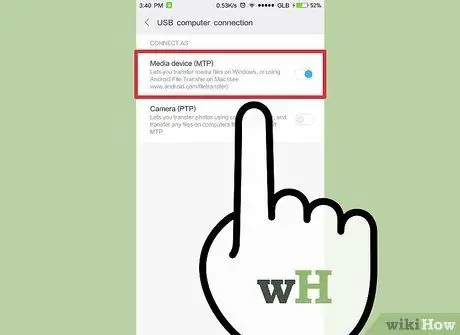
Step 4. Select "File transfer," "Media transfer," or "MTP"
This mode allows the phone to connect to a Mac as a USB drive, and display the contents of the drive in Android File Transfer. The name of this mode may vary depending on the device you are using.
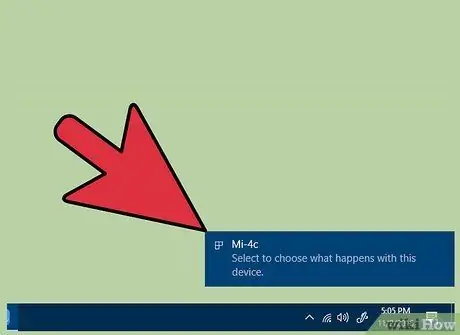
Step 5. Wait for the driver to install
Generally, Windows will be able to install the necessary drivers for the phone to connect to the computer. If the driver installation process fails, or Windows cannot find a suitable driver, install the driver from the phone manufacturer.
Search for drivers with the keyword "drivers", then click the link to the phone manufacturer's website. Make sure you only download drivers from obvious sources
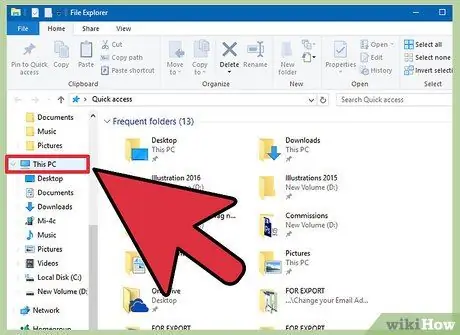
Step 6. Open the Computer/This PC window from the Start menu, or press Win+E
You will see a window showing all connected devices and drives.
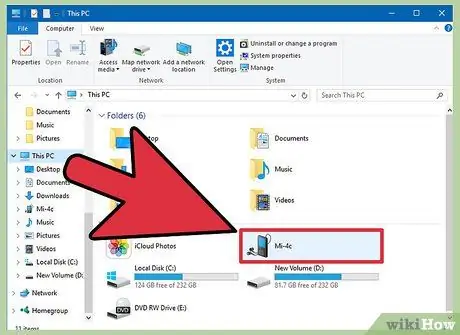
Step 7. Double click the Android phone
You'll probably only see your phone type in the Computer/This PC window, and your phone will appear in the "Devices and drives" or "Devices with removable storage" section.
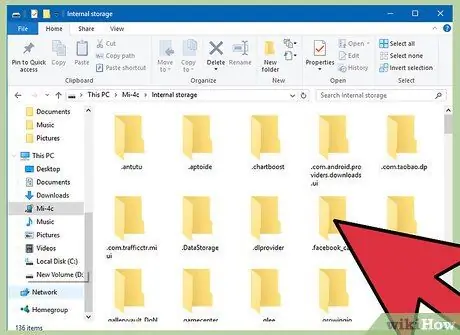
Step 8. Open the file in the Android phone
Once your phone appears in the Computer/This PC window, you'll be able to see the various folders in the file system. Commonly found folders include "DCIM" (camera), "Pictures", "Videos", "Music", and "Ringtones". Often times, installed apps will also create a special folder.
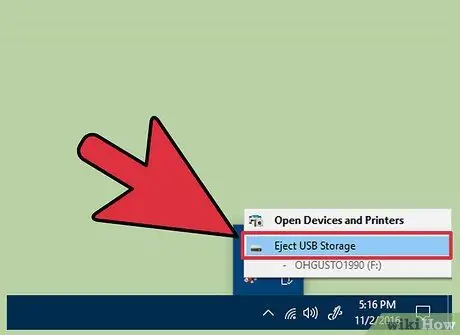
Step 9. Unplug the phone from the computer when you are done accessing the files
Click the "Safely Remove Hardware" button in the system drawer, in the lower right corner of the desktop. After that, click "Eject" on the Android phone entry.
You may need to show hidden icons to find the "Safely Remove Hardware" button
Method 3 of 3: Using AirDroid for Wireless (Mac and Windows)
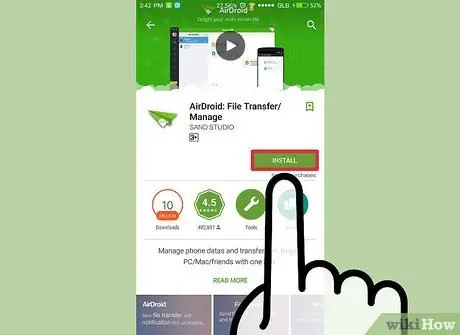
Step 1. Install AirDroid app to Android phone for free from Google Play Store
This app allows you to connect your phone to your computer and transfer files wirelessly.
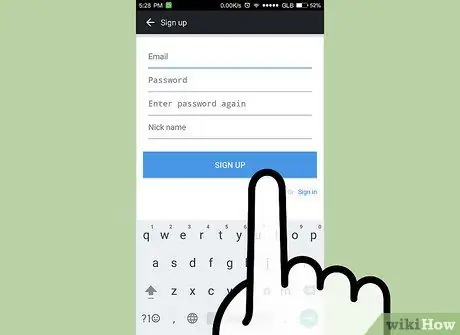
Step 2. Create an AirDroid account to make it easier for you to connect your phone to your computer
Tap the "Sign Up" button the first time you open AirDroid, then follow the on-screen instructions.
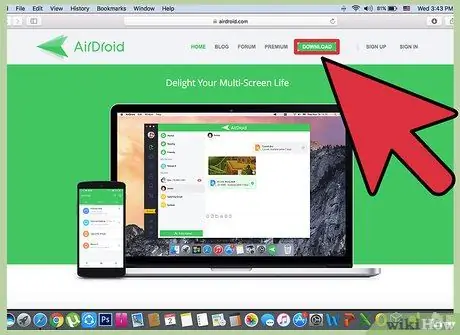
Step 3. Download AirDroid on your Windows or Mac computer
This free program can be downloaded from airdroid.com. Scroll to the bottom of the site, then click the Download button according to the operating system you are using.

Step 4. Once the download process is complete, run the installation program to install the AirDroid desktop client
If you don't want McAfee Web Advisor, make sure you decline the offer to install it
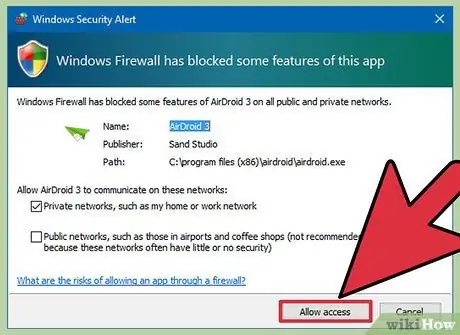
Step 5. Allow network access in Windows Firewall if prompted
Open the app once it's installed, and you'll see the AirDroid network access request in the Windows Firewall. Once allowed, you can access your Android phone remotely.
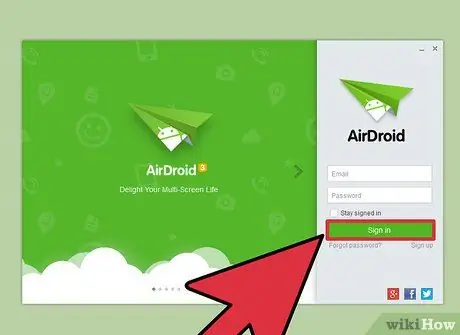
Step 6. Sign in to the AirDroid desktop app with the same account as the phone
After logging in, the app will connect with the Android phone.
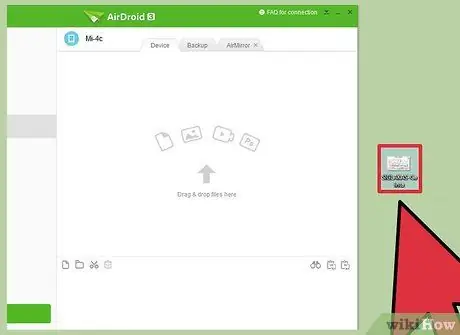
Step 7. Send files to your Android phone from your computer by dragging and dropping them into the AirDroid window
Click "Transfer Files", then select the "Device" tab. After that, drag and drop the files you want to send to your phone.
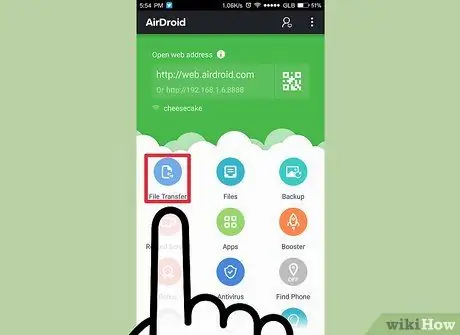
Step 8. Send files to computer from Android phone
Tap the "File Transfer" button in the AirDroid main menu. Select "AirDroid Desktop", and select the file you want to send. The file will be transferred wirelessly to the computer..






